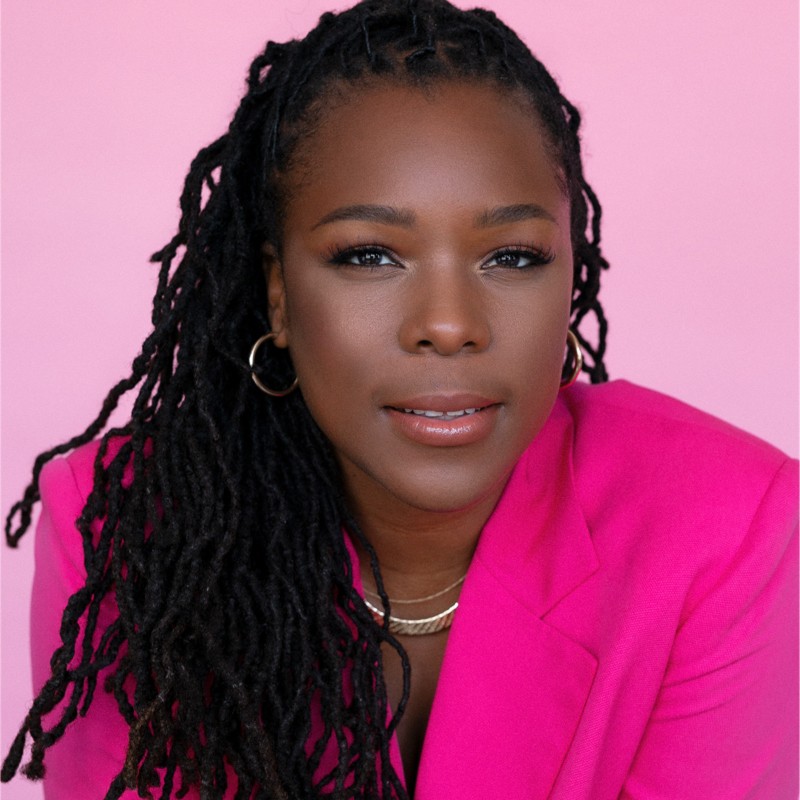For nearly 100 years, the United States has celebrated Black History Month. But if you were to search the backstory about the observance, you’d learn that the celebration initially was only a week long.
Originally, Black History Month was called “Negro History Week,” developed in the early 20th century by historian Carter G. Woodson as a way to acknowledge and document the impact of Black people. The shift to a month-long celebration didn’t happen until 50 years later.
And oftentimes, I feel the support for the Black community and its impact on the world is limited to and only acknowledged for a month.
For small business owners, Black History Month offers a chance to show your support for the Black community and engage in initiatives that directly support its existence.
But we can do more.
In addition to celebrating Black History Month with community appreciation and recognition, you as a small business can leverage your resources to strengthen Black-owned businesses year-round.
We’ve created the following guide to support you in understanding the significance of Black history as well as ways small business owners can authentically show up, hold space, and champion Black businesses and customers - not only during February, but every day of the year.
1. Be a catalyst for societal change on your scale
As a small business owner, you have the power to recognize the lived experiences of Black neighbors and business owners. Your influence can create space for engaged work and advocacy that supports the Black community and others around you.
Starting (but not ending) this month, you can:
-
Review business practices to ensure your business is engaged in inclusive, equitable work and compensation structures.
-
Adopt a policy of "upliftment" and awareness over profit for improved community relations (more on this in the #3).
-
Initiate community-wide events or projects to promote inclusivity and ease of access to resources for Black business owners.
-
Launch initiatives to support local Black-owned businesses.
What would this look like in practice?
-
Start with your own business by reviewing your business practices to ensure wage equity, diverse hiring, and opportunities for growth to foster inclusivity.
-
For your local community, introduce free professional services the community members can leverage that may support their economic advancement.
-
Lastly, hosting community events and seminars specifically aimed at Black entrepreneurs and initiating programs for broader inclusion underscores the commitment to "upliftment" and awareness.
2. Promote and/or partner with other local Black-owned Businesses
The Small Business Administration (SBA) recently spotlighted the substantial impact of Black-owned businesses, revealing today that over three million businesses are employing almost 1.2 million people. This data underscores the vital role of Black-owned businesses in the American economy and their contributions to job creation and economic diversity.
However, that doesn’t mean Black-owned businesses haven’t seen a disproportionate amount of obstacles. For example, a report from Mckinsey found that Black-owned businesses received a much smaller share of startup investments, averaging $35,000 compared to $107,000 for similar white entrepreneurs.
Additionally, the COVID-19 pandemic has intensified these challenges, with 92% of Black-owned businesses reporting financial struggles from 2020 on–a higher percentage than that reported by white-owned firms.
Given the many challenges that Black-owned businesses face, supporting these entrepreneurs beyond Black History Month could be a step toward positive economic change.
Simple tips to achieve this include:
-
Showcasing their works and products in your business premise, or even on social media platforms where your brand show up.
-
Working directly with Black-owned businesses in your community on local, promotional offers that highlight them.
-
Consistently buying from them.
3. Focus on "upliftment," not just profit
Remember, Black History Month focuses on raising awareness and appreciating the community’s contribution to American history and culture, not increasing your sales.
When you have a platform, whether its through your business or your own personal brand, you have an opportunity to use it to bring awareness to people and issues you care about.
Use your platform to:
-
Beware of performative and appropriative activism. Root yourself in your purpose for why you’re engaging at all, helping you avoid offense.
-
Support community-driven causes.
-
Highlight Black voices.
-
Promote local Black-owned businesses.
Embrace Black History month with your platform
Black History Month is a celebration of the Black community's resiliency, progress, and contributions to the nation and beyond. You have the power to engage with the Black community in your neighborhood - not just this month, but all year round using your business platforms to commemorate the contributions of Black people.
By acknowledging your Black community members, you can contribute to a better future for all in your community.
This strengthens the community's bonds and lets your neighbors know that you care and are committed to fostering unity, respect, and understanding.
Sources:
National Museum of African American History and Culture. Black History Month. https://nmaahc.si.edu/about/news/black-history-month
NAACP. Black History Month. https://www.naacp.org/naacp-history-black-history-month
McKinsey. The Black unicorn: Changing the game for inclusivity in retail. https://www.mckinsey.com/industries/retail/our-insights/the-black-unicorn-changing-the-game-for-inclusivity-in-retail
United States Small Business Association. Facts About Small Business: Black Ownership Statistics. https://advocacy.sba.gov/2023/02/22/facts-about-small-business-black-ownership-statistics/.
Brookings Institute. An analysis of financial institutions in Black-majority communities: Black borrowers and depositors face considerable challenges in accessing banking services.https://www.brookings.edu/articles/an-analysis-of-financial-institutions-in-black-majority-communities-black-borrowers-and-depositors-face-considerable-challenges-in-accessing-banking-services/







